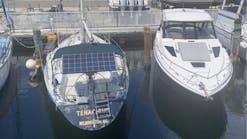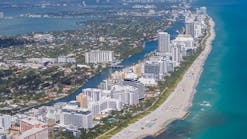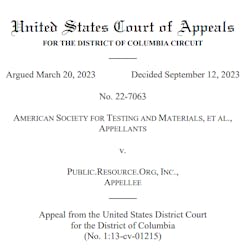Although I was a member of ASHRAE at the time it was filed, until recently I was unaware of the organization's long-standing lawsuit against Public.Resource.Org regarding the free distribution of certain building and fire codes.
After 10 years, the case finally was resolved last month in the U.S. Court of Appeals for the D.C. Circuit.
In 2013, ASHRAE, along with the American Society for Testing and Materials (ASTM) and the National Fire Protection Association (NFPA), sued Public Resource for making certain codes available to the public online at no charge. Because those codes incorporated standards developed and promulgated by the plaintiff organizations, they alleged that the defendant’s dissemination of them without permission constituted copyright infringement.
The case was first heard in U.S. District Court of D.C. There, the defendant argued that, because the plaintiffs’ standards were already incorporated by reference into federal, state, and local government codes, then posting them online constituted "fair use", not copyright infringement.
The court, however, did not accept that argument and, in 2017, granted summary judgment to ASHRAE and the other plaintiffs. The defendant appealed that decision to the U.S. Court of Appeals for the D.C. Circuit and that court, in 2018, reversed the District Court’s decision and sent the case back to the lower court to be reconsidered.
Last year, after receiving additional information from all of the parties, the District Court held that the posting of 184 standards was fair use, the posting of 32 standards was not fair use, and the posting of one standard was fair use "in part."
ASHRAE and the other plaintiffs then appealed that decision back to the appellate court. The case drew a number of amicus curiae (friend of the court) briefs for both sides. Briefs on behalf of the plaintiffs came from the American National Standards Institute (ANSI), six standards organizations, the American Medical Association, and the Copyright Alliance. Briefs supporting Public Resource's fair use argument came from such diverse organizations as former government publishing officials, Prime Access Consulting, Inc., Library Futures Institute, intellectual property law professors, the Reporters Committee for Freedom of the Press, 11 media organizations, County of Sonoma (CA), U.S. Rep. Zoe Lofgren, the NAACP, and AFSCME. In all, there were more than 50 amicus briefs filed.
Finally, on Sept. 12, 2023, after a decade of litigation, the U.S. Court of Appeals for DC found for Public Resource, holding “that the noncommercial dissemination of such standards, as incorporated by reference into law, constitutes fair use and thus cannot support liability for copyright infringement.”In response, ANSI on Sept. 15 said, "The decision is narrowly drafted and applies only to the situation that was before the Court. The decision does not invalidate copyright in incorporated-by-reference (IBR) standards or change the policy that directs all federal agencies, when seeking to incorporate a standard by reference, to 'observe and protect the rights of the copyright holder.'” (OMB Circular A-119, 81 Fed. Reg. 4573, 4673-4674 Jan. 27, 2016 and https://www.whitehouse.gov/wp-content/uploads/2020/07/revised_circular_a-119_as_of_1_22.pdf).
For its part, reached at press time, ASHRAE, itself, declined to comment on the case.
So, what does all this mean for engineers like me who have been purchasing those standards from ASHRAE? As I read it, it means that from now on, for standards incorporated into public building and fire codes, such as ASHRAE 90.1, they can continue to be obtained at no cost at https://public.resource.org/.
For standards not incorporated into codes, you will still need to purchase them from the standard provider. My hope now is that this will end the matter for ASHRAE and it will not use member dues to pursue any further legal action.
##########
A contributor to HPAC Engineering since 2013 and a member of its editorial advisory board, the author is a principal at Sustainable Performance Solutions LLC, a south Florida-based engineering firm focusing on energy and sustainability. He can be reached at [email protected].










